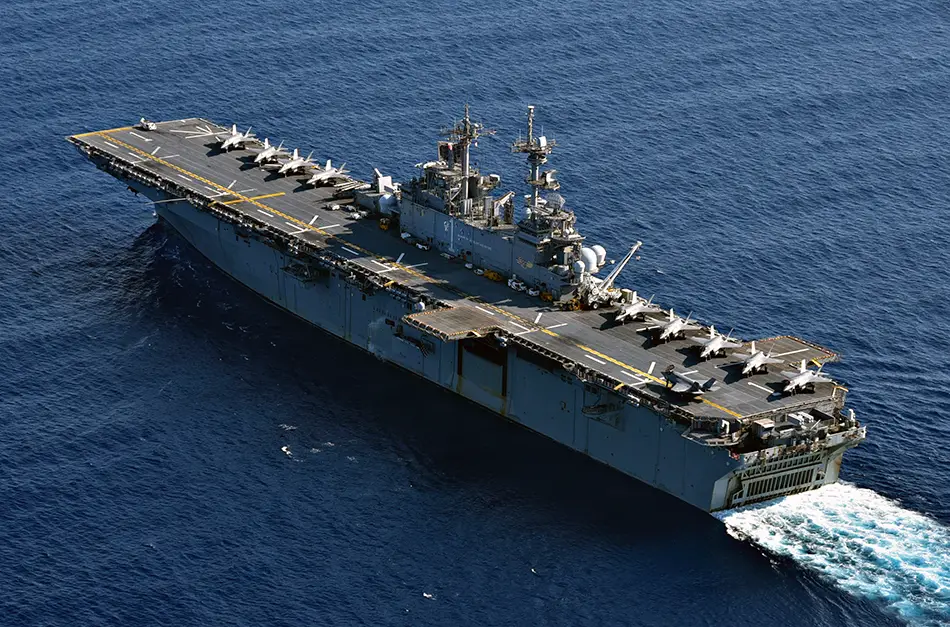Yes, this is a good thing given the great improvement the F-35B provides over the ancient Harrier that used to be carried:
In sailing with nearly twice as many vertical-landing fighters than is normal for an assault ship, Wasp is helping to prove a concept the Marine Corps seriously has been mulling over for years now -- transforming amphibious ships into light aircraft carriers.
It's an idea that's gaining credibility as the Navy considers cutting the number of large carriers in the fleet.
Such small carriers are not a cost effective replacement for big deck carriers. The math doesn't work out for such a replacement. Seriously, Wasp is not a carrier. The Navy understands this, fortunately.
Even if you replaced each large carrier with four light carriers to match sortie rates, the smaller carrier can't carry the breadth of naval aviation that the big carriers can embark. Nor do the small carriers have the endurance of the nuclear-powered ships, which eases the strain of refueling surface escorts.
Perhaps drone aircraft in many of those roles could fit on the small carriers but I'm skeptical light carriers can do the job. Especially if you still want amphibious warfare.
But the small amphibious ship provide a useful sea-based aviation capability in their light carrier role.
I think the true replacement for aircraft carriers in the sea control role is--as I projected in 2000--a networked force of surface warships (with rail guns!), submarines, sea- and land-based air power, and land-based anti-ship artillery (including rockets and missiles).
Add in auxiliary cruisers and we're all set for whatever you want to call it, whether "network-centric warfare," "cooperative engagement," the "tactical cloud," "distributed lethality," or a "kill net."
Abut remember that power projection and sea control are different missions when you assess the role of sea-based aviation. I think we need fewer big-deck super carriers for the former mission and should not rely on them in the face of enemy kill nets for the latter.
UPDATE: Wasp in the South China Sea this month, from Strategypage:

